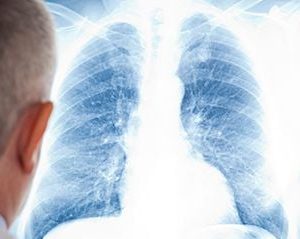- Could Your Grocery Store Meat Be Causing Recurring UTIs?
- Are You Making This Expensive Thermostat Error This Winter?
- Recognizing the Signs of Hypothyroidism
- 10 Strategies to Overcome Insomnia
- Could Artificial Sweeteners Be Aging the Brain Faster?
- Techniques for Soothing Your Nervous System
- Does the Water in Your House Smell Funny? Here’s Why
- Can a Daily Dose of Apple Cider Vinegar Actually Aid Weight Loss?
- 6 Health Beverages That Can Actually Spike Your Blood Sugar
- Treatment Options for Social Anxiety Disorder
Immunotherapy Before and After Surgery Boosts Lung Cancer Survival

Immunotherapy can boost the survival of early-stage lung cancer patients eligible for surgery when it’s combined with chemotherapy, a new clinical trial reports.
Those who got immunotherapy before and after surgery — along with pre-surgical chemo — had a 42% lower risk of cancer progression, recurrence or death than those who only received chemo, according to findings published May 15 in the New England Journal of Medicine.
Further, about 25% of those who got immunotherapy and chemo had no cancer at all remaining after their surgery, compared with about 5% of those who got chemo alone.
“These findings add to evidence that the … immunotherapy path gives patients with operable lung cancer an opportunity to live longer without their cancer returning,” said principal investigator Dr. Tina Cascone, an ssociate professor of thoracic/head & neck medical oncology at the University of Texas MD Anderson Cancer Center.
The clinical trial involved treatment with nivolumab (Opdivo), a cancer immunotherapy drug made by Bristol-Myers Squibb. The drug maker funded the trial.
Nivolumab works by blocking cancer cells’ ability to evade detection by the immune system, allowing immune cells to attack and kill the cancer.
About 30% of patients diagnosed with early-stage, non-small-cell lung cancer have a tumor that can be removed through surgery, researchers said in background notes.
However, more than half will have their cancer come back without additional therapy, and chemo delivered before or after surgery has only provided a minimal survival benefit, researchers said.
For the clinical trial, researchers recruited more than 450 lung cancer patients aged 18 or older from around the world.
Patients randomly were assigned to receive nivolumab before and after surgery along with pre-surgical chemo, or pre-surgery chemo only.
Patients who only got chemo had an average event-free survival time of a little more than 18 months after about 25 months of follow-up. That included death or their cancer recurring or progressing.
But people who received nivolumab hadn’t reached an average event-free survival time by the end of follow-up, meaning that it was prolonged significantly over the control group, researchers said.
Results revealed no new safety concerns regarding nivolumab, researchers said. Serious side effects were seen in 32% of patients receiving the combo therapy versus 25% of those receiving chemo alone.
“I am enthusiastic about the initial findings of the study,” Cascone said in a university news release. “Looking ahead, it will be critical to identify patient and disease characteristics that will tell us who can potentially be cured with neoadjuvant chemoimmunotherapy only and who will benefit from more intensified treatment strategies.”
More information
The American Cancer Society has more about lung cancer.
SOURCE: University of Texas, news release, May 15, 2024
Source: HealthDay
Copyright © 2026 HealthDay. All rights reserved.










